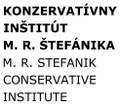
 Read an extract from an interview with Marcel Guarnizo, Catholic priest and a Chairman of The Educational Initiative for Central and Eastern Europe, who was a guest speaker at the CEQLS lecture held by the Conservative Institute on December 10, 2008.
Q: Following the fall of communism is the world more ethical?
Read an extract from an interview with Marcel Guarnizo, Catholic priest and a Chairman of The Educational Initiative for Central and Eastern Europe, who was a guest speaker at the CEQLS lecture held by the Conservative Institute on December 10, 2008.
Q: Following the fall of communism is the world more ethical?
It's hard to say, but in modern history there hasn't been a less ethical system than communism, probably even in the entire history of humanity. If we started thinking about what the world would be like without morals and ethics we would realize that a world without these is Soviet-style Communism. For a person to experience Communism, or a society lacking morals or ethics, he would have to witness Kamchatka during the 1930's. I was always surprised at why American leftist intellectuals who were strongly Pro-Marxist never moved to Russia. Despite their convictions they enjoyed their private possessions, freedom of speech, and right of assembly. I would say that they were not intellectually sincere.
Q: What about the strong resonations the major issue of poverty has with Socialists?
It's unacceptable to support a covetous culture of poor against rich and to justify their thievery. There are countries where there is redistribution of income, which is unfair even though it is done for the sake of the war on poverty. In my opinion this breaches the seventh commandment: thou shall not steal.
Q: In the Church these are words which are not heard very often.
From the beginning the Church has been a major proponent of private possessions. Socialism is against this idea. It would be great if the Church kept emphasizing the idea. Even Jesus said that the poor will always be with us, which means that we shouldn't dream of utopias in which poverty is eliminated and we create Paradise on Earth. Life on this planet will always be imperfect and the poor will always be here.
Extract from an interview published in the Slovakia`s leading economic weekly TREND.
 The lecture of Marcel Guarnizo presented a lecture at the Conservative Economic Quarterly Lecture Series (CEQLS) held by the Conservative Institute of M. R. Štefánik in Bratislava on December 10, 2008. More information is available here.
The lecture of Marcel Guarnizo presented a lecture at the Conservative Economic Quarterly Lecture Series (CEQLS) held by the Conservative Institute of M. R. Štefánik in Bratislava on December 10, 2008. More information is available here.